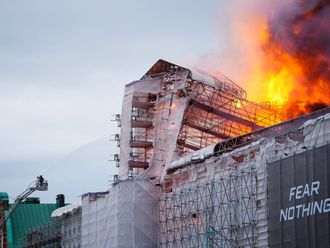The run-up to the Chinese ‘year of the snake’ began with a strange fizzle. Stock performance of companies in the fireworks sector, instead of soaring, as it usually does this time of the year, went damp. Fireworks manufacturers, who happen to be listed on the Shanghai stock exchange, see their sales ratchet up around the spring festival. But this time, the performance of companies like Panda Fireworks Group may be below expectations, thanks to a warning to the citizens of a dangerously polluted Beijing, urging them to curb their enthusiasm, shun fireworks and help improve air quality.
The fate of fireworks makers and distributors, however, is just a blip on the overall feeling of optimism. The forthcoming ‘year of the snake’ will see financial markets slither higher, despite China’s involvement in several territorial disputes. International investors are also bullish on Chinese equities, their optimism fuelled by renewed emphasis by the new government on the need for reforms. China is entering a new era of equities and foreign investors will keep an eye on the crucial policy decisions taken in March which will set the agenda for 2013.
The central bank, however, is wary of an inflationary pressure. The recovery of the economy and rebounding demand may result into consumer prices moving very quickly. During this crucial stage of economic transition, prevention of inflation risks will be the central theme of financial macro-control.
But planners say that the risks to the economy can be managed and there is no serious threat. Money supply has been growing at a slower pace and there are no indications of the economy overheating. Analysts are optimistic that money supply will continue to grow but it won’t generate as much of an asset bubble as it did in 2007.
There have been some legitimate worries on this account. M2 (broad measure of money supply that takes into account all deposits and cash in circulation) exceeded $15.5 trillion by the end of 2012. This was the highest in the world and accounted for about one quarter of the global money supply of 366 trillion yuan at the end of 2012. Economists fear that such a huge amount of money in any country would lead to asset bubbles, inflation and a capital exodus.
Snaking up
However, with the holiday season approaching, investors are more keen on ‘feng shui’ predictions. CLSA Asia-Pacific Markets which releases a tongue-in-cheek annual ‘feng shui’ index during Chinese new year, assured investors that 2013 would see a ‘good balance of five fundamental elements’. Going by ‘feng shui’ logic, transport, logistics, shipping, tourism and infrastructure, would be the favoured sectors, along with banking and financials, currency trading, autos and commodities. And if investors are looking for a warning, they could go easy on oil and gas, telecoms, technology and utilities, which are predicted to suffer.
Feng shui predictions aside, action on the real life bourse have been encouraging. On February 1, the Shanghai Composite Index exceeded the 2,400 level for the first time in nine months after rising for five consecutive days, entering a bull run. The index has risen by about 23 percent from early December, when it was at a three-year low of 1,949.
The China Developers Sentiment Index, developed by a foreign bank’s quarterly survey of property developers, also indicated an expansion appetite returning to the real estate sector, which had been under strict control for over two years. Land purchases are going up and construction activity is set to pick up in the next few months. The de-stocking of apartment inventories continues, though the pace varies across cities.
Developers expect home sales to be even better this year than in 2012, and apartment prices to rise moderately. Land sales figures in China’s 10 key cities almost tripled in the first month of 2013, fuelled by improved cash flow and expectations of a rosy real estate market this year.
The writer is a freelance journalist based in China.












